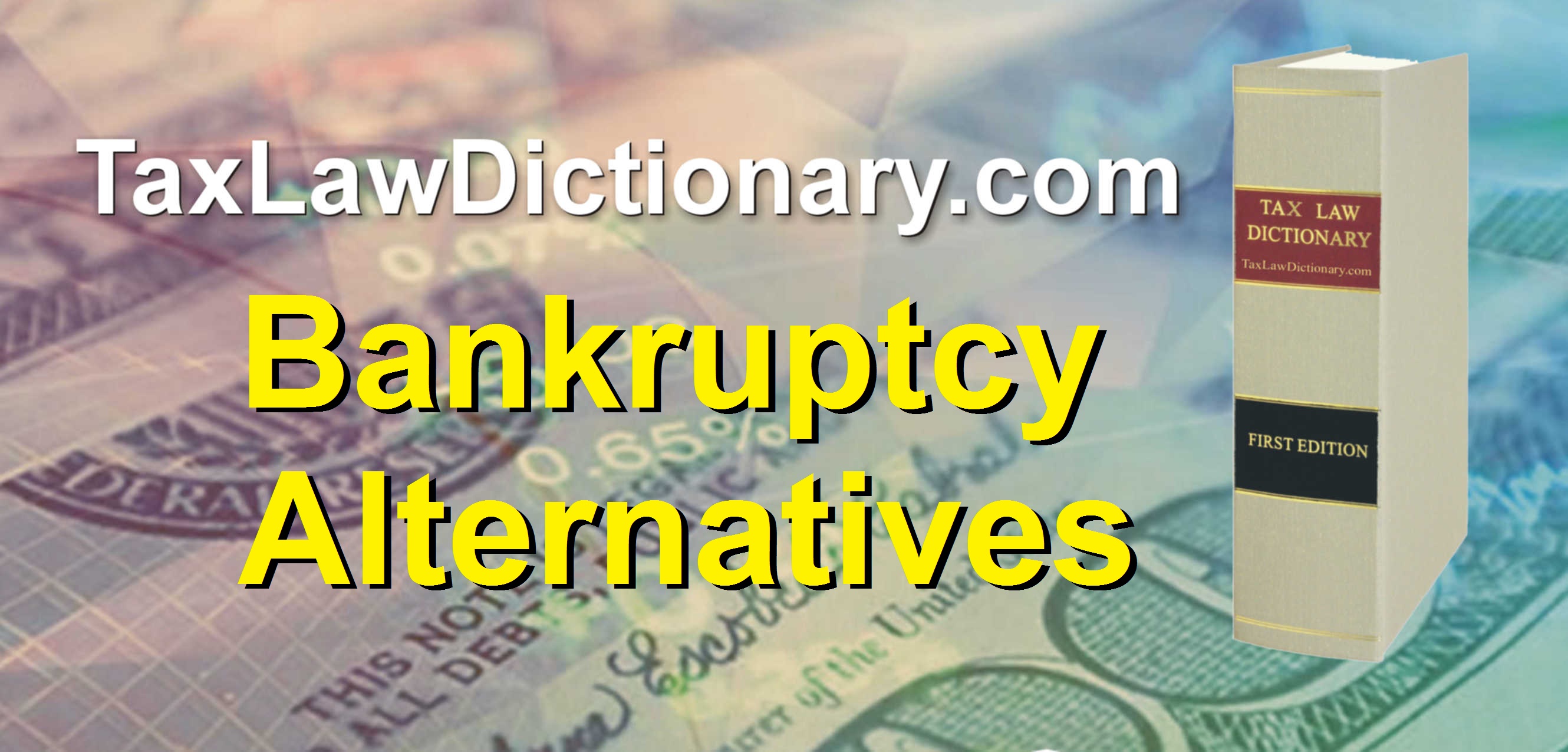 Tax Law Term “Bankruptcy Alternatives“
Tax Law Term “Bankruptcy Alternatives“
Bankruptcy is a statutory procedure by which a person is relieved of most debts. Liquidation and rehabilitation are two general types of bankruptcy. The terms “bankruptcy”, and “Chapter 7 bankruptcy” are used to describe liquidation cases under Chapter 7 of the Bankruptcy Code. The vast majority of bankruptcy cases are liquidation cases, under which non-exempt property, if any, is surrendered to the trustee, who converts the property to cash and distributes the net cash to creditors. Chapters 11, 12, and 13 of the Bankruptcy Code provide for debtor rehabilitation in which creditors are paid out of the future earnings of the debtor to satisfy their claims. Alternatives to bankruptcy include credit counseling services, agreements with creditors, and a home mortgage or second mortgage consolidation loan.
Bankruptcy is a legally declared inability or impairment of ability of an individual or organization to pay their creditors. In most cases personal bankruptcy is initiated by the bankrupt individual. Bankruptcy is a legal process that discharges most debts, but has the disadvantage of making it more difficult for an individual to borrow in the future. To avoid the negative impacts of personal bankruptcy, individuals in debt have a number of bankruptcy alternatives. Wikipedia
If you are struggling with debt, bankruptcy might be a good option. But before you file for Chapter 7 or Chapter 13 bankruptcy, explore alternatives to bankruptcy. In some situations, a non-bankruptcy course of action may be your best remedy. Read on to learn about the main alternatives to bankruptcy when dealing with debt issues. Nolo
Browse topics related to ‘Bankruptcy Alternatives’
- Debt Consolidation Alternatives
- What Are The Most Common Reasons To File Chapter 7 Bankruptcy
- Chapter 13 Bankruptcy
- How To Get Out Of Debt Without Ruining Your Credit
- 5 What Are The Most Common Reasons To File Chapter 7 Bankruptcy
- Avoid Chapter 13
- What Are The Differences Between Voluntary And Involuntary Bankruptcy?
- What Is The Process For Filing Bankruptcy?
